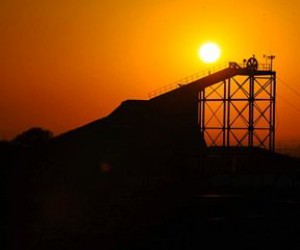Statistics released by Stats SA on Tuesday, 27 November show a third-quarter growth of only 1.2% on a seasonally adjusted and annualised basis, compared with 3.4% in the prior quarter. This is mainly due to a sharp decrease in mining production caused by the wildcat strikes in the platinum- and gold-mining industries.
Annabel Bishop, chief economist at Investec Group Economics, said the gross domestic product data had clearly captured the impact of recent illegal strike action on economic activity until the end of September.
She said growth for full-year 2012 was likely to be lower than the 2.5% year-on-year previously expected, but still above 2% year-on-year.
GDP growth was expected to edge up to 1.6%‚ according to a poll of leading economists by I-Net Bridge.
Elna Moolman, an economist at Renaissance Capital, told Business Day that the figure was even worse than Renaissance had anticipated.
"This weakness is at least partly owing to the negative impact from the strikes, which we expect to have an even bigger impact on growth and trade data for the fourth quarter of the year," she said.
Mike Schussler, chief economist at Economists.co.za, said: "The way things are going, we are looking more and more at a situation of stagflation. Inflation is increasing from cost pressures, administered prices and the rand; and on top of all that, the strike.
"But even without the strike, we wouldn’t have had a growth rate above 2.5%," he added.
The mining and quarrying industry recorded a negative contribution of 0.6 of a percentage point, Stats SA said.
The reduction in mining output dampened manufacturing growth, which increased by only 1.2%, while retail growth slowed to 1.7% as those participating in the strikes were not paid and, therefore, spending less.
Economists indicated that the growth was slower than the 1.5% that the market had expected, but that it had come as no surprise.
Investec commented that the slower growth “captured the impact of South Africa’s work stoppages stemming from recent strike action”, pointing to the sector’s seasonally adjusted and annualised growth contracting 12.7% during the quarter under review.
The group further expected the GDP growth for the year to be lower than the previously forecast 2.5%, but not below 2%, as the impact of the mining strikes during the September quarter spiralled into other sectors.
Banking group Nedbank said that while it believed weaker global demand held back growth in the manufacturing sector and softer domestic spending dragged down retail growth, a weak and vulnerable world economy would continue to undermine the mining and manufacturing sectors.






